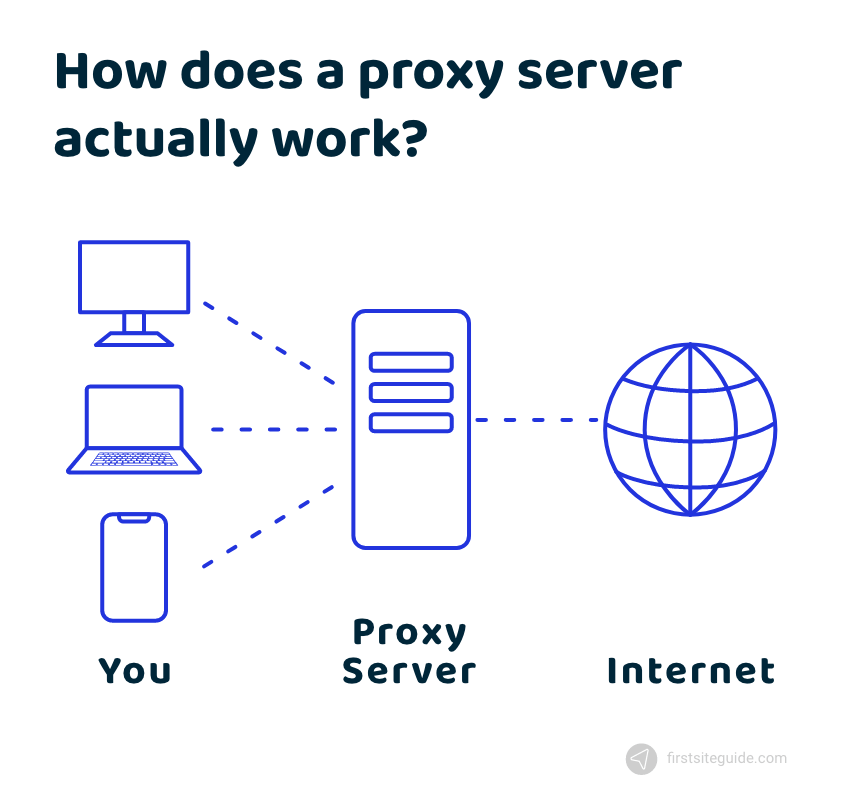In today's digital age, the significance of protecting online privacy and security cannot be overstated. As we spend more time on the internet, from enjoying our beloved series to conducting sensitive transactions, the dangers of revealing personal data have increased considerably. One powerful solution that has emerged in response to these challenges is the proxy server. These tools can help users browse the web with increased anonymity, reach content limited by geographic boundaries, and enhance their overall online experience.

These proxy servers operate by serving as an intermediary between individuals and online content, concealing users' IP addresses and sending data through various servers. This essential role provides a range of possibilities, from improving security against cyber threats to assisting in data collection for market insights. However, not all proxy servers are created equal, and given the multiple types available, including HTTP, SOCKS, alongside transparent proxies, understanding their unique characteristics is crucial. As we examine the growth of proxy servers, we will analyze their positive aspects, any risks involved, and methods for using them to improve web navigation and effectiveness.
Understanding Interceptor Systems
Interceptor systems act as middlemen between users and the internet, channeling requests from users to the desired servers. When a user sends a request for a page, it initially goes through the proxy server, which then relays it to the target server. The target server manages the request and delivers the content back to the proxy, which in turn forwards it to the client. This procedure helps hide the client's identity, offering a level of privacy.
There are multiple types of proxy servers, each fulfilling varied functions. Some frequent kinds include HTTP intermediaries, which are crafted for online traffic; SOCKS intermediaries, which can handle any form of data; and transparent relay, which don’t alter requests as they route them. Comprehending these variations is crucial when selecting a proxy for particular needs, whether for internet security, security, or gaining entry to geo-restricted content.
The utilization of proxy servers has surged due to their capability to improve internet privacy and protection. They can assist shield individuals from likely threats by masking their real identities and coding data. As more people and businesses seek improved methods to safeguard their data, proxy servers are becoming an necessary resource in contemporary web navigation, allowing for a safer and more adaptable internet encounter.
Advantages and Drawbacks of Proxy Servers
Utilizing proxy servers offers numerous benefits, notably in enhancing online privacy and security. As browsing the internet via a proxy, users can conceal their IP addresses, which makes it more difficult for websites and potential attackers to follow their online activities. This anonymity is particularly for individuals who emphasize their privacy or demand a secure connection while accessing public Wi-Fi networks. Moreover, many proxies provide extra features such as screening content and preventing malicious sites, which contributes to a more secure online experience.
However, not all proxies are designed equal, and there are intrinsic risks associated with their use. Free proxy servers are often flaky and may threaten users' security by tracking their data or injecting ads into their traffic. Additionally, some proxies may be operated by bad entities aiming to gather personal information. Users should be vigilant when selecting a proxy service, ensuring they opt for reliable providers that focus on security and privacy to reduce these risks.
Furthermore, though proxy servers can boost browsing speeds by storing frequently visited content, they may also introduce latency due to their routing processes. Omeka.net can be a negative for users seeking optimal performance, especially in activities that demand low latency, such as online gaming or streaming. It's crucial to weigh these potential disadvantages against the benefits to make informed decisions about proxy usage for both personal and professional needs.
Proxy in Various Industries
In the field of finance, proxies play a key role in securing private data. Banks often use these servers to guarantee safe transactions and safeguard customer information. By redirecting their web traffic through a proxy server, banks can mask their IP addresses, reducing the risk of security breaches and enhancing online security. Additionally, proxies enable these institutions to monitor and manage internal network usage, safeguarding compliance with industry regulations and minimizing the possibility of data breaches.
In the film and television industry, proxies present significant advantages for content accessibility and data management. Online streaming platforms frequently implement proxy technology to tackle geo-restrictions and facilitate viewers around the world to access a broader array of content. By utilizing proxies, media production firms can efficiently gather data on viewer preferences and streaming trends, helping them customize their offerings. Furthermore, these servers can facilitate collaborative workflows among geographically separated teams by offering secure access to shared resources.
For businesses involved in digital marketing and market research, proxies are invaluable for competitive intelligence and data scraping. Digital marketers utilize proxies to confidentially collect data from competitor websites, study pricing structures, and monitor consumer behavior without revealing their identity. This not only boosts strategic decision-making but also helps in holding a competitive edge. Additionally, proxies allow businesses to conduct extensive market analysis without concern of IP bans, safeguarding continuous data flow and consistent insights into industry trends.
